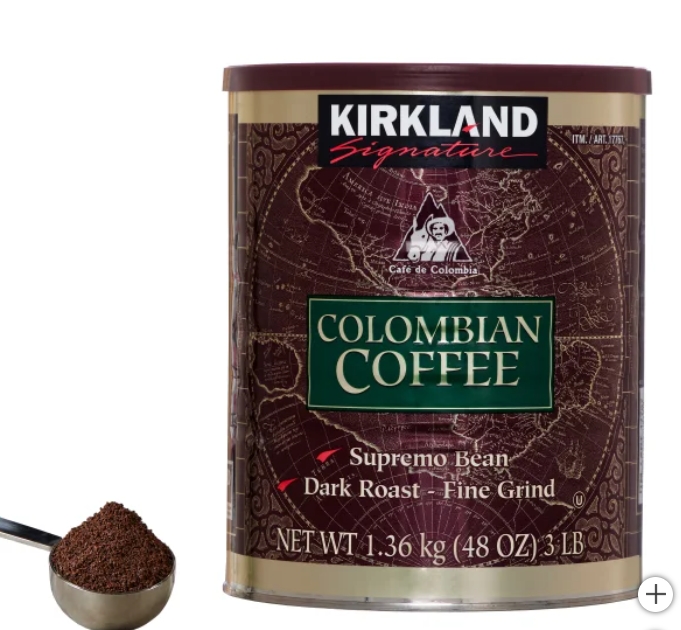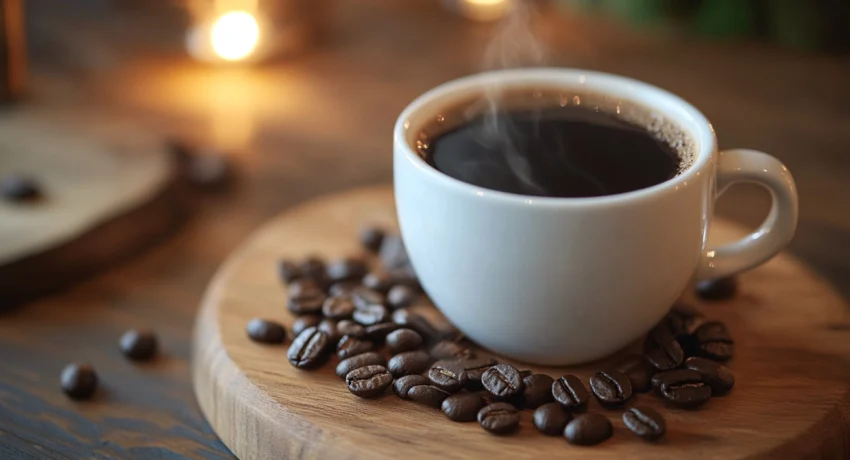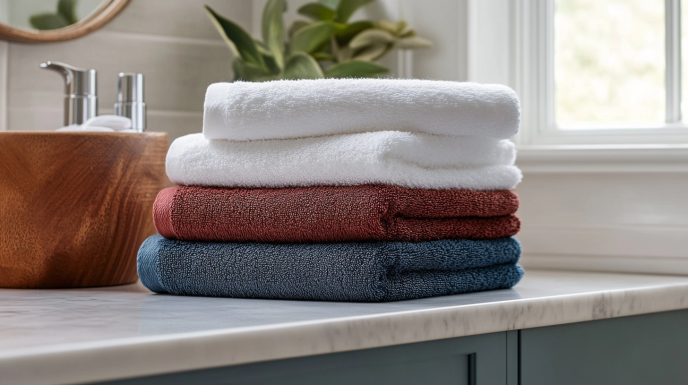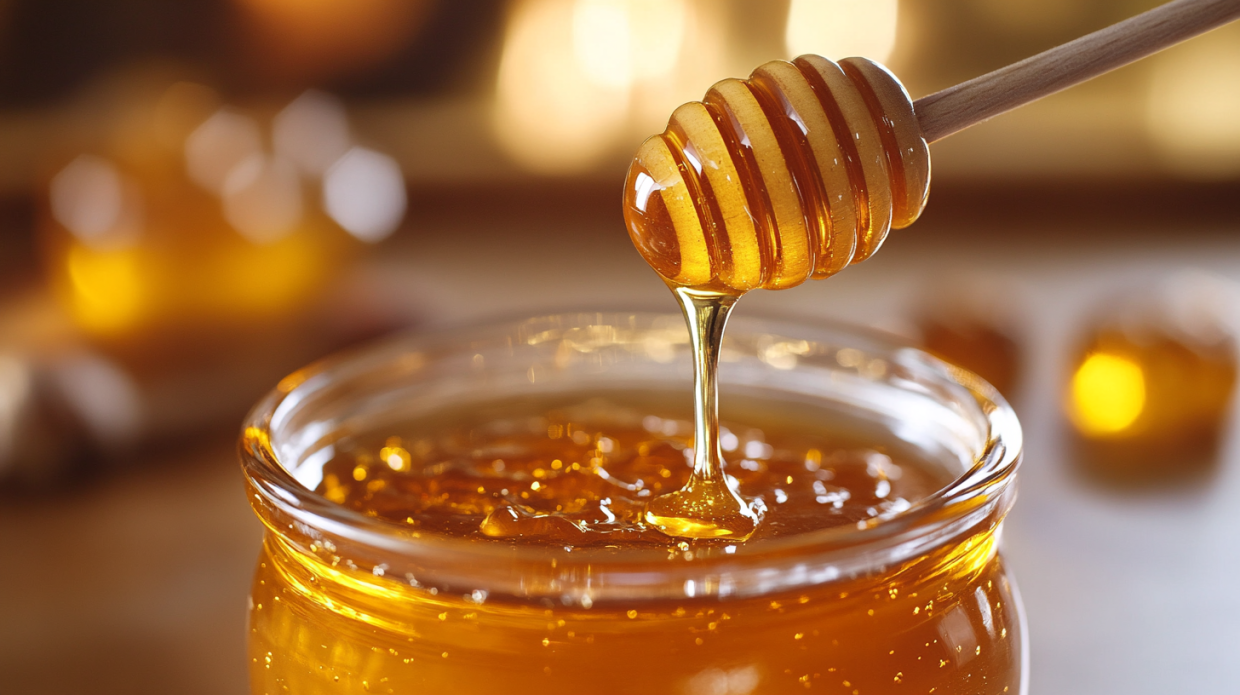
Kirkland Signature Colombian Coffee, Dark Roast, 3 lbs
- Columbian Coffee
- Dark Roast
- Fine Grind
- Supremo Bean
- Total Net Weight 3lb
Discovering Costco’s Secret Weapon for Coffee Lovers
In the world of coffee, certain brands dominate the landscape with flashy marketing and premium price tags. Yet tucked away in the aisles of Costco sits a contender that has quietly built a loyal following: Kirkland Signature Coffee. For years, this house brand has been the subject of whispered recommendations among coffee enthusiasts who’ve discovered that quality coffee doesn’t need to come with a luxury price tag.
As someone who has spent countless mornings experimenting with different brews, I’ve developed a special appreciation for what Kirkland Coffee brings to the table. Today, I’m pulling back the curtain on everything you need to know about this unassuming yet impressive coffee line.
The Mystery Behind Kirkland Coffee: Who Really Makes It?
One of the most persistent questions surrounding Kirkland Signature products is who actually manufactures them. With coffee being no exception, coffee lovers have speculated for years about the true source of these beloved beans.
The truth is fascinating: Kirkland Signature Coffee is produced by different roasters depending on the specific coffee variety. The most notable partnership is with Starbucks, which produces the Kirkland Signature House Blend Coffee. Yes, that’s right – when you purchase certain Kirkland coffee varieties, you’re actually getting Starbucks-roasted beans at a fraction of the price.
However, not all Kirkland coffees come from Starbucks. The brand works with various coffee suppliers around the world to source and roast their different offerings. For example, their single-origin coffees may come from specialized roasters with expertise in specific regions, while their organic options partner with certified organic producers.
This multi-supplier approach allows Costco to maintain quality while keeping prices remarkably affordable. It’s part of Costco’s broader strategy with their Kirkland Signature line – partnering with respected manufacturers to produce high-quality products without the brand-name markup.
Exploring the Kirkland Coffee Lineup: Something for Every Coffee Lover
Walk down the coffee aisle at Costco, and you’ll find an impressive array of Kirkland coffee options. The brand has expanded significantly over the years to accommodate different preferences, brewing methods, and dietary considerations.
Whole Bean Options
- Kirkland Signature House Blend – A medium roast with balanced flavor and acidity
- Kirkland Signature French Roast – A bold, dark roast with smoky undertones
- Kirkland Signature Colombian Supremo – A single-origin medium roast with bright notes
- Kirkland Signature Espresso Blend – A dark roast specifically formulated for espresso
- Kirkland Signature Rwandan Dark Roast – A single-origin dark roast with chocolate notes
Ground Coffee Options
Most of the whole bean varieties are also available pre-ground, perfect for those without a home grinder. The grind is typically medium, suitable for standard drip coffee makers.
K-Cup Options
For Keurig users, Kirkland hasn’t forgotten you. Their K-Cup offerings include:
- Kirkland Signature Pacific Bold – A dark roast with rich flavor
- Kirkland Signature Breakfast Blend – A lighter option for morning brewing
Specialty Options
- Kirkland Signature Organic Coffee – USDA-certified organic beans
- Kirkland Signature Decaf Coffee – Available in both whole bean and ground
- Kirkland Signature Fair Trade Coffee – Ethically sourced options with fair trade certification
The variety continues to evolve, with seasonal offerings occasionally appearing on shelves. This diversity reflects Costco’s understanding that coffee drinkers are not a monolithic group – preferences vary widely, and their selection acknowledges this reality.
Quality in Every Cup: How Good Is Kirkland Coffee Really?
Coffee snobs might initially turn up their noses at store-brand coffee, but Kirkland Signature has consistently proven the skeptics wrong. But don’t just take my word for it – let’s break down what makes this coffee stand out.
Bean Quality
Kirkland sources Arabica beans for the majority of their coffees, which are widely considered superior to Robusta beans. Their single-origin offerings, like the Colombian Supremo, feature high-altitude grown beans that develop more complex flavors.
The beans are consistently well-sorted, with few defects visible in the whole bean varieties. This attention to quality control is particularly impressive at their price point.
Roasting Expertise
With partners like Starbucks handling roasting for some varieties, the beans receive professional treatment. The roast levels are consistent batch to batch, which is crucial for coffee lovers who value predictability in their morning cup.
Each roast profile is well-executed for its intended purpose – their dark roasts are bold without being burnt, while their medium roasts preserve the beans’ natural characteristics while developing pleasant caramelization.
Freshness Factors
While not as fresh as beans from a local roaster dated by roasting day, Kirkland coffees are vacuum-sealed promptly after roasting, which helps preserve freshness. The packaging includes one-way degassing valves to release carbon dioxide without letting oxygen in – a feature typically found in premium coffee brands.
Blind Taste Test Results
In numerous blind taste tests against more expensive brands, Kirkland coffees frequently perform admirably. Their House Blend and French Roast varieties regularly score comparably to coffees costing twice as much or more.
The consensus among coffee enthusiasts is that Kirkland offers exceptional value-to-quality ratio, delivering cups that satisfy both casual drinkers and more discerning palates.
Accessibility and Affordability: Where to Find Kirkland Coffee
As a Kirkland Signature product, the primary place to purchase these coffees is at Costco warehouse locations. The availability of specific varieties may vary by region and store, with some locations carrying a wider selection than others.
For those without a Costco membership, there are still ways to access Kirkland coffee:
- Online through Costco.com (though membership is still required for most purchases)
- Through third-party sellers on platforms like Amazon (often at a markup)
- By shopping with a friend who has a Costco membership
The pricing is where Kirkland coffee truly shines. A 2-pound bag of whole bean coffee typically costs between $9.99 and $14.99, depending on the variety. Compare this to other brands where you might pay $15 or more for just 12 ounces, and the value becomes immediately apparent.
This combination of quality and affordability makes Kirkland coffee particularly attractive for:
- Families that go through coffee quickly
- Office settings where quality matters but budget is a concern
- Coffee enthusiasts who drink multiple cups daily
The Caffeine Question: How Much Energy Are You Getting?
For many coffee drinkers, caffeine content is an important consideration. Kirkland coffees contain varying levels of caffeine depending on the specific variety and roast level.
On average, their medium roast offerings contain approximately 12-14 mg of caffeine per fluid ounce when brewed according to standard methods. This translates to roughly 96-112 mg in an 8-ounce cup, which is comparable to other major coffee brands.
Their dark roast varieties, contrary to popular belief, may actually contain slightly less caffeine than the medium roasts. This is because the longer roasting process breaks down some of the caffeine compounds. However, the difference is typically minimal.
The decaffeinated options still contain trace amounts of caffeine – usually less than 3% of the original caffeine content, or approximately 2-5 mg per 8-ounce cup. This meets the standards for coffee to be labeled as decaffeinated.
For those sensitive to caffeine or looking to manage their intake, Kirkland’s clear labeling makes it easy to make informed choices about which variety best suits your needs.
Going Green: Organic Options in the Kirkland Coffee Line
Environmental and health-conscious consumers will be pleased to know that Kirkland does offer certified organic coffee options. Their organic varieties are certified USDA Organic, meaning they meet strict growing and processing standards:
- No synthetic pesticides or fertilizers
- Sustainable farming practices
- No GMO ingredients
- Regulated processing methods
The organic offerings typically come from regions known for organic coffee production, including parts of Central and South America. These beans are grown in harmony with their natural environments, often under shade-grown conditions that promote biodiversity.
While the organic options may cost slightly more than their conventional counterparts, they still represent excellent value compared to other organic coffee brands on the market. This price difference reflects the additional costs associated with organic certification and sustainable farming practices.
For those prioritizing organic products, Kirkland’s offerings provide a way to align environmental values with budget considerations – a balance that can be difficult to achieve with many premium organic coffee brands.
Decaf Without Compromise: Kirkland’s Caffeine-Free Options
Decaf coffee often gets a bad reputation for lacking flavor, but Kirkland has worked to ensure their decaffeinated options don’t fall into this trap. They offer several decaf varieties, typically including:
- Decaf House Blend
- Decaf Colombian
- Decaf French Roast
The decaffeination process used for Kirkland coffees varies by variety, but they primarily use the Swiss Water Process or the CO2 process. These methods avoid the chemical solvents used in some decaffeination processes, resulting in a cleaner taste and addressing health concerns associated with chemical decaffeination.
The Swiss Water Process, in particular, is lauded for preserving more of the coffee’s original flavor profile while removing 99.9% of the caffeine. This attention to quality processing means Kirkland’s decaf options taste remarkably similar to their caffeinated counterparts – a rarity in the world of decaffeinated coffee.
For coffee lovers who need to limit caffeine intake due to health concerns, sensitivity, or personal preference, the Kirkland decaf line offers a way to enjoy coffee without compromise.
Flavor Favorites: The Most Popular Kirkland Coffee Varieties
While taste is subjective, certain Kirkland coffee varieties consistently receive higher praise than others. Based on customer reviews and coffee enthusiast forums, these are the standout favorites:
1. Kirkland Signature House Blend
The House Blend has become somewhat legendary among Costco shoppers. With its balanced profile, notes of cocoa and slight nuttiness, it’s an approachable coffee that satisfies a wide range of palates. Its versatility makes it suitable for morning drinking, after dinner, or anytime in between.
2. French Roast
For those who prefer their coffee bold and intense, the Kirkland French Roast delivers rich, smoky flavors with a surprisingly clean finish. Unlike some dark roasts that taste burnt, this variety maintains complexity while delivering the satisfying depth dark roast lovers crave.
3. Colombian Supremo
This single-origin offering showcases what makes Colombian coffee special – bright acidity balanced with caramel sweetness and a full body. It’s particularly praised for its smooth finish and consistency bag after bag.
4. Espresso Blend
Those using espresso machines at home have found the Kirkland Espresso Blend produces impressive results, with proper crema development and the robust flavor profile necessary for both straight espresso and milk-based drinks.
5. Rwandan Dark Roast
A newer addition to the lineup, this African single-origin has quickly developed a following for its distinctive flavor profile featuring dark chocolate notes, berry undertones, and a surprisingly clean finish despite the dark roast level.
These favorites demonstrate Kirkland’s ability to cater to different preferences while maintaining quality across their product line. The popularity of these varieties has remained consistent over time, speaking to the brand’s commitment to consistency.
Ethics in Your Cup: Fair Trade Certification and Sourcing Practices
Coffee production has a complicated history when it comes to labor practices and environmental impact. For ethically-minded consumers, Kirkland offers several Fair Trade Certified coffee options.
This certification ensures:
- Farmers receive fair compensation for their crops
- Child labor and forced labor are prohibited
- Sustainable farming practices are encouraged
- Community development is supported through premiums
Beyond formal certification, Costco has developed direct relationships with coffee producers in various regions, often paying above-market prices to secure quality beans and support sustainable production. These relationships allow for greater transparency in the supply chain and more consistent quality in the final product.
Kirkland’s commitment to ethical sourcing extends to environmental considerations as well. Many of their coffees come from shade-grown operations, which preserve forest canopies and provide habitat for birds and other wildlife.
While not every Kirkland coffee carries specific certifications, the brand has demonstrated a commitment to responsible sourcing practices across their coffee line. For consumers who prioritize ethical considerations, the certified options provide peace of mind, while the broader sourcing approach reflects Costco’s corporate values of fair dealing with suppliers.
Brand Comparison: How Kirkland Coffee Stacks Up Against Competitors
The coffee aisle is crowded with options at various price points. Here’s how Kirkland compares to other major players in the market:
Vs. Starbucks
Since Starbucks produces some Kirkland varieties, the comparison is particularly interesting. In blind taste tests, many coffee drinkers cannot distinguish between Kirkland’s House Blend and Starbucks’ comparable offerings. The primary difference? Price. Kirkland typically costs 30-50% less per ounce.
Vs. Dunkin’
Dunkin’ coffees tend to be lighter and more straightforward than most Kirkland varieties. Kirkland generally offers more complexity and better bean quality at a lower price point, though some prefer Dunkin’s familiar, approachable profile.
Vs. Peet’s
Peet’s is known for darker roasts with bold flavors. Kirkland’s dark roast options compete well on flavor intensity, though some coffee aficionados find Peet’s offers more distinctive character. Again, Kirkland wins significantly on price.
Vs. Local Specialty Roasters
This is where the comparison gets interesting. Freshly roasted beans from local roasters will typically offer brighter flavors and more distinctive characteristics than mass-produced options like Kirkland. However, specialty coffee often costs 3-4 times more per pound. For many, Kirkland provides 80% of the quality at 25% of the price.
Vs. Other Store Brands
Against other store brands like Great Value (Walmart) or Folgers, Kirkland consistently outperforms on quality metrics while remaining competitively priced. The bean quality, roasting consistency, and flavor complexity put Kirkland in a different category from most budget coffee options.
This competitive analysis reveals Kirkland’s unique position in the market: offering near-premium quality at budget-friendly prices. For value-conscious consumers who still care about taste, Kirkland coffee represents one of the best compromises available in the coffee market.
The Starbucks Connection: Separating Fact from Fiction
The relationship between Kirkland coffee and Starbucks has been the subject of much speculation. Here’s what we know for certain:
Starbucks does indeed roast certain Kirkland coffee varieties, most notably the Kirkland Signature House Blend. This partnership began years ago and has been acknowledged by both companies.
However, this doesn’t mean that all Kirkland coffees are simply repackaged Starbucks beans. The relationship is more nuanced:
- Starbucks roasts specific varieties according to Kirkland specifications
- The beans sourced for Kirkland products may differ from those used in Starbucks-branded coffees
- The roast profiles may be tailored specifically for the Kirkland line
- Other Kirkland varieties are produced by different roasters entirely
This arrangement allows Costco to leverage Starbucks’ roasting expertise and infrastructure while maintaining control over their product specifications and pricing. It’s a smart business relationship that benefits consumers who get access to professionally roasted coffee at Kirkland’s value pricing.
For coffee drinkers who enjoy Starbucks but find the price prohibitive for everyday consumption, the Kirkland varieties roasted by Starbucks offer an excellent alternative that doesn’t sacrifice quality.
What’s Inside: Kirkland Coffee Ingredients and Processing
Coffee is technically a single-ingredient product – roasted coffee beans. However, the processing methods and additional steps taken impact the final product significantly.
Kirkland coffee beans are 100% Arabica in most varieties, with some blends potentially incorporating small amounts of Robusta beans for additional body and crema (particularly in espresso blends). The ingredient list is refreshingly simple: coffee.
The processing methods vary by variety:
- The beans undergo standard washing, drying, and sorting at origin
- Roasting occurs in modern facilities with precise temperature control
- After roasting, the beans are promptly packaged to preserve freshness
- No artificial flavors or additives are included in the standard varieties
For flavored varieties that occasionally appear in the lineup, natural flavorings are typically used rather than artificial compounds. The decaffeination process, as mentioned earlier, primarily uses the Swiss Water Process or CO2 method rather than chemical solvents.
This straightforward approach to ingredients and processing contributes to the clean taste profile that many Kirkland coffee drinkers appreciate. Without unnecessary additives or cutting corners on processing, the natural qualities of the beans themselves can shine through.
Price Point: What You’ll Pay for Kirkland Coffee at Costco
One of the most compelling aspects of Kirkland coffee is its pricing structure. While prices may vary slightly by location and over time, here’s what you can generally expect to pay at Costco warehouses:
- 2-pound bag of whole bean coffee: $9.99-$14.99
- 3-pound can of ground coffee: $13.99-$17.99
- 36-count K-Cup boxes: $33.99-$38.99
- Organic varieties: $2-4 more per equivalent package
This pricing translates to approximately:
- $0.31-$0.47 per ounce for whole bean coffee
- $0.29-$0.37 per ounce for ground coffee
- $0.94-$1.08 per K-Cup
For comparison, specialty coffee typically costs $1.00-$1.50 per ounce, while mainstream premium brands like Starbucks retail for $0.75-$1.00 per ounce. This makes Kirkland coffee roughly one-third to one-half the price of comparable quality options.
The value proposition becomes even more apparent when considering that most coffee drinkers can’t detect significant quality differences between Kirkland and coffees costing twice as much. For households consuming coffee daily, switching to Kirkland can represent hundreds of dollars in savings annually without sacrificing the enjoyment of a quality cup.
Brewing Perfection: Getting the Most from Your Kirkland Coffee
Even the best coffee beans can produce disappointing results if brewed improperly. Here are optimized brewing recommendations for Kirkland coffee varieties:
For Drip Coffee Makers
- Water temperature: 195-205°F (90-96°C)
- Coffee-to-water ratio: 1:16 (about 1 tablespoon per 6 oz of water)
- Grind size: Medium (similar to sea salt)
- Filter type: Paper filters work well, but a gold-tone permanent filter can allow more oils to pass through
For French Press
- Water temperature: 195-205°F (90-96°C)
- Coffee-to-water ratio: 1:12 (about 1.5 tablespoons per 6 oz of water)
- Grind size: Coarse (similar to breadcrumbs)
- Brew time: 4 minutes before plunging
For Pour-Over Methods
- Water temperature: 195-205°F (90-96°C)
- Coffee-to-water ratio: 1:15 (about 1.1 tablespoons per 6 oz of water)
- Grind size: Medium-fine (between table salt and sand)
- Pour technique: Start with a 30-second bloom using twice the coffee weight in water
For Espresso
- Water temperature: 195-200°F (90-93°C)
- Coffee-to-water ratio: 1:2 for a standard double shot
- Grind size: Fine (similar to powdered sugar)
- Pressure: 9 bars ideal
- Recommended variety: Kirkland Espresso Blend or French Roast
Regardless of brewing method, freshness matters. Once opened, store your Kirkland coffee in an airtight container away from light, heat, and moisture. Consider purchasing whole beans and grinding just before brewing for optimal flavor.
For the K-Cup varieties, running a short “cleansing brew” of just water through your Keurig before inserting the pod can help ensure the machine is hot and clean for optimal extraction.
These brewing recommendations will help ensure you’re experiencing Kirkland coffee at its best, bringing out the nuanced flavors that make each variety special.
Convenience in a Cup: Kirkland’s K-Cup Options
For those who prioritize convenience, Kirkland’s K-Cup offerings provide a quick, consistent brewing solution compatible with Keurig machines and similar pod-based systems.
The K-Cup lineup typically includes:
- Pacific Bold – A dark roast with robust flavor
- Breakfast Blend – A lighter, brighter option
- Organic K-Cups – Available seasonally in some locations
These pods contain the same quality coffee as their bagged counterparts, ground to specifications ideal for the K-Cup brewing method. The cups themselves are designed to optimize extraction during the brief brewing cycle of pod machines.
Price-wise, Kirkland K-Cups maintain the brand’s value proposition, typically costing 30-50% less than name-brand alternatives like Starbucks or Green Mountain. A box of 36 Kirkland K-Cups typically retails for $33.99-$38.99, or approximately $0.94-$1.08 per cup – significantly less than the $1.25-$1.75 per cup for many competing options.
Environmental considerations have led to improvements in K-Cup design, with newer Kirkland K-Cups featuring more recyclable components. However, they still generate more waste than traditional brewing methods. For environmentally conscious consumers who still want the convenience of pod brewing, using the coffee grounds for composting and recycling the appropriate components can help mitigate the environmental impact.
Origins and Terroir: Where Kirkland Coffee Beans Come From
Coffee, like wine, is influenced by its growing conditions – the soil, altitude, climate, and processing methods all contribute to the final flavor profile. Kirkland sources beans from various coffee-growing regions around the world:
Colombian Beans
The Colombian Supremo and other Colombian-origin Kirkland coffees come from high-altitude regions like Huila, Nariño, and Cauca. These regions are known for producing beans with bright acidity, medium body, and notes of caramel and citrus.
Central American Beans
Several blends incorporate beans from countries like Guatemala, Costa Rica, and Honduras. These origins typically contribute chocolate notes, nutty flavors, and balanced acidity to the coffees.
African Beans
The Rwandan Dark Roast showcases the unique characteristics of East African coffee, with its berry notes and wine-like acidity. Other blends may incorporate Ethiopian or Kenyan beans for complexity.
Indonesian Beans
Some darker roasts and espresso blends include beans from Sumatra or Sulawesi, which add earthy, spicy characteristics and substantial body to the finished product.
This global sourcing approach allows Kirkland to create both distinctive single-origin offerings and complex, balanced blends. The relationships developed with growers in these regions help ensure consistent quality and characteristics year after year, despite the agricultural variables inherent in coffee production.
Light to Dark: Exploring Kirkland’s Roast Spectrum
Roast level significantly impacts coffee’s flavor profile, and Kirkland offers options across the spectrum to suit different preferences:
Light Roasts
- Breakfast Blend – A lighter option with higher acidity and more pronounced origin characteristics
- Organic Light Roast – Showcases delicate floral and fruit notes
Medium Roasts
- House Blend – The flagship offering with balanced flavor
- Colombian Supremo – Medium roast that highlights the bean’s natural characteristics
- Organic Medium Roast – A balanced option with sustainable credentials
Dark Roasts
- French Roast – Bold, smoky flavor with less acidity
- Espresso Blend – Developed specifically for espresso preparation
- Rwandan Dark Roast – A single-origin dark roast with unique characteristics
- Sumatra Dark Roast – Rich, earthy flavor profile
Each roast level serves a purpose beyond just flavor intensity. Light roasts preserve more of the bean’s natural characteristics and origin flavors, while darker roasts develop more body and sweeter caramelized notes at the expense of some origin distinctiveness.
For coffee drinkers still discovering their preferences, Kirkland’s range provides an affordable way to explore different roast profiles without committing to expensive specialty coffees. Many consumers find that they enjoy different roast levels for different occasions or times of day – perhaps a lighter roast in the morning and a darker option after dinner.
Online Availability: Getting Kirkland Coffee Without a Warehouse Visit
While Costco warehouses remain the primary retail channel for Kirkland products, there are several ways to purchase Kirkland coffee online:
Costco.com
The official website offers many Kirkland coffee varieties, though the selection may differ from in-store offerings. A Costco membership is typically required for purchasing, and shipping costs may apply for smaller orders. However, bulk purchases often qualify for free shipping.
Instacart and Similar Services
In many areas, delivery services like Instacart offer Costco shopping and delivery. This allows non-members to access Kirkland products, though service fees and delivery charges will increase the overall cost.
Third-Party Retailers
Platforms like Amazon and eBay frequently list Kirkland coffee products through third-party sellers. While convenient, these listings typically come with a significant markup over warehouse prices. Additionally, authenticity and freshness can sometimes be concerns when purchasing through unauthorized channels.
For those without convenient access to a Costco warehouse, these online options provide alternatives, albeit at a potential premium. Regular coffee drinkers may find that the savings from a Costco membership justify the annual fee if Kirkland coffee becomes a household staple.
The Verdict: What Coffee Lovers Really Think About Kirkland Coffee
No assessment of Kirkland coffee would be complete without considering the broader consumer response. Reviews across platforms reveal several consistent themes:
Positive Feedback
- Value proposition – The quality-to-price ratio is frequently cited as exceptional
- Consistency – Consumers appreciate that the coffee tastes the same batch after batch
- Comparable to premium brands – Many note they cannot distinguish between Kirkland and more expensive alternatives
- Versatility – The coffees work well across different brewing methods
Critical Feedback
- Freshness concerns – Some note that beans may not be as freshly roasted as specialty coffee shop options
- Limited seasonal offerings – Compared to specialty roasters, Kirkland has fewer limited-edition or seasonal options
- Roast level accuracy – Some varieties may be slightly darker than their labeling suggests
The overall sentiment across review platforms is overwhelmingly positive, with most Kirkland coffee varieties maintaining 4+ star ratings out of 5. Professional reviews from coffee publications generally acknowledge Kirkland as an exceptional value option that outperforms its price category.
Perhaps most telling is the brand loyalty observed among Kirkland coffee drinkers. Many report switching from more expensive brands years ago and never looking back, having found that Kirkland coffee satisfies their taste preferences while providing significant cost savings.
Conclusion: Why Kirkland Coffee Deserves a Place in Your Cup
After examining every aspect of Kirkland coffee – from sourcing and production to flavor profiles and value – the conclusion is clear: this is a product line that deserves serious consideration from any coffee drinker.
What makes Kirkland coffee special isn’t any single revolutionary feature; rather, it’s the thoughtful execution across all aspects of coffee production and distribution. By partnering with established roasters like Starbucks, sourcing quality beans from renowned growing regions, and leveraging Costco’s efficient business model, Kirkland delivers coffee that competes with brands costing twice as much or more.
For daily coffee drinkers, the savings can be substantial without the sacrifice in quality that typically accompanies lower prices. For coffee enthusiasts, Kirkland offers a reliable everyday option that frees up the coffee budget for occasional specialty splurges.
In a market often dominated by either overpriced premium options or underwhelming budget alternatives, Kirkland coffee occupies a sweet spot that makes quality coffee accessible to more people. That democratization of good coffee might be its most important contribution to coffee culture.
Whether you’re brewing your first cup of the day, hosting friends for dessert, or just enjoying a quiet moment alone, Kirkland coffee provides a satisfying experience that reminds us that sometimes the best values are hiding in plain sight, just waiting to be discovered.




